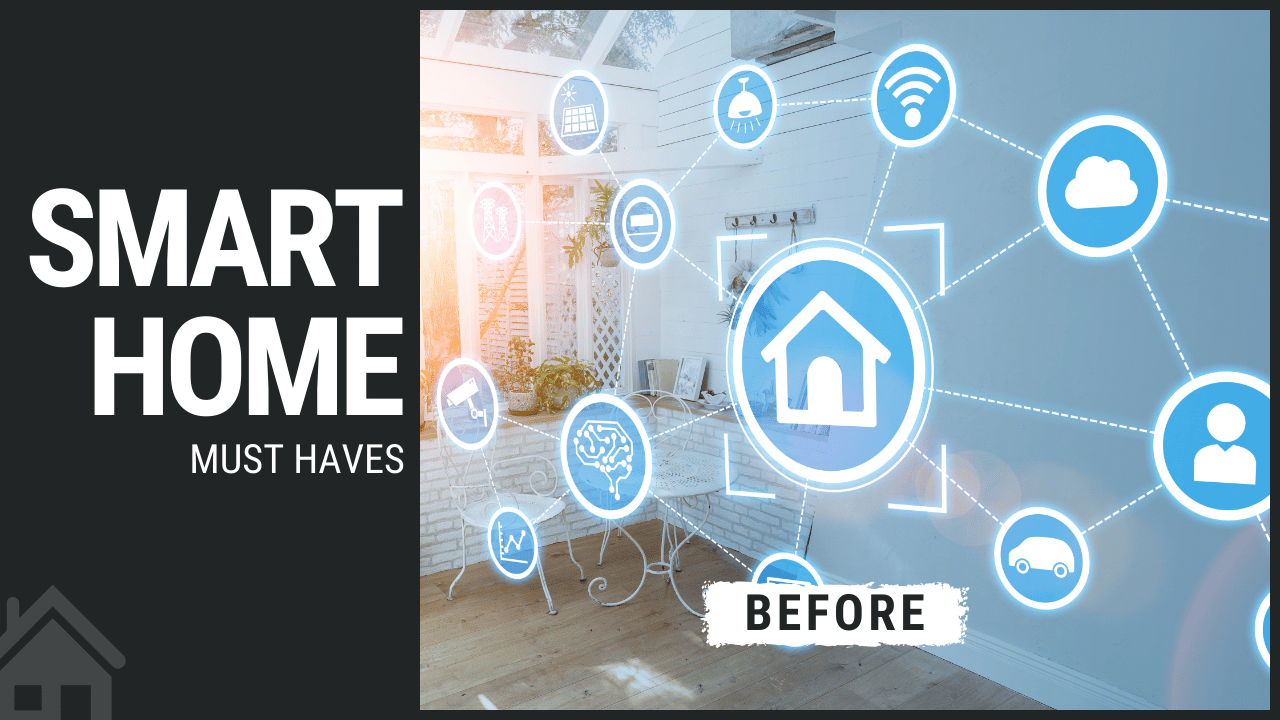
When we think of smart home technology, we tend to think of things like lighting and home security. While those are both important, smart technology also has a significant focus on health and wellness which will reshape the way we manage our living spaces and personal well-being. Here’s a closer look at some of the key technologies that help create healthier homes and improve personal health, including air quality monitoring, sleep optimization, and integrated fitness tools.
Air Quality and Environmental Monitoring
Indoor air quality can significantly impact health, particularly for individuals with allergies, asthma, or sensitivities to pollutants. Today’s advanced smart air quality monitors track various environmental metrics, such as air quality, humidity, temperature, and allergen levels, providing real-time data that can lead to healthier living spaces. These devices often work in tandem with air purifiers or smart thermostats to automatically adjust humidity levels, filter out pollutants, and maintain a comfortable temperature.
Many systems, like the Airthings Wave Plus and IQAir AirVisual Pro, can detect pollutants like volatile organic compounds (VOCs) and particulate matter (PM2.5) that are often invisible to the eye. They send alerts to a smartphone app, enabling homeowners to take immediate action to improve their indoor environment. Some systems even integrate with other smart home devices to automatically trigger air purifiers or humidifiers when levels become unbalanced, creating a healthier and more comfortable atmosphere.
Sleep Optimization with Smart Beds
A good night’s sleep is essential for mental and physical health, and smart beds are revolutionizing how we approach rest. Smart beds, like those offered by Sleep Number and Eight Sleep, adjust firmness, temperature, and support based on an individual’s needs, helping improve sleep quality. These beds are equipped with sensors that track sleep patterns, heart rate, and breathing, which are analyzed to provide insights into the user’s sleep quality and suggest improvements.
Some models allow for dual adjustments, so partners with different sleep preferences can customize each side of the bed. Additionally, temperature control is a key feature in many smart beds, as studies show that cooler temperatures can promote deeper sleep. Smart beds often sync with smartphone apps, where users can review sleep data, set sleep goals, and receive personalized suggestions for better rest. Many smart beds also have integration options with other smart devices, such as dimming lights or playing soothing sounds when it’s time to sleep.
Integrated Smart Fitness Tools
The future is here. With 2025 less than two months away, the rise of in-home fitness, smart home gyms and integrated fitness tools are making it easier than ever to prioritize health. In-home fitness mirrors, like Tonal, offer virtual personal training experiences, with real-time coaching and feedback during workouts. These devices not only display workouts but also track performance, monitor heart rate, and guide users through customized exercise plans. Fitness mirrors can be connected to other health apps, so users can integrate their exercise data with other health metrics, giving a more comprehensive view of their fitness journey.
Smart fitness equipment, such as Peloton bikes and NordicTrack treadmills, goes beyond traditional exercise by offering interactive experiences, including live classes and virtual competition. Many of these devices come equipped with sensors that monitor progress, from calorie burn to heart rate, allowing users to track and improve their performance over time. Some systems even provide personalized training programs, based on collected health metrics, that adjust to the user’s goals and fitness levels. The Oura Ring also collects this data–and you don’t even have to work out.
Final Thoughts
The combination of smart environmental monitoring, sleep optimization, and integrated fitness tools offers a holistic approach to wellness within the home. By investing in these smart home technologies, the Yosha Snyder Group wants you to know that it is possible create a healthier environment, optimize their sleep, and engage in regular fitness activities—all while keeping track of health metrics that inform your overall well-being.

